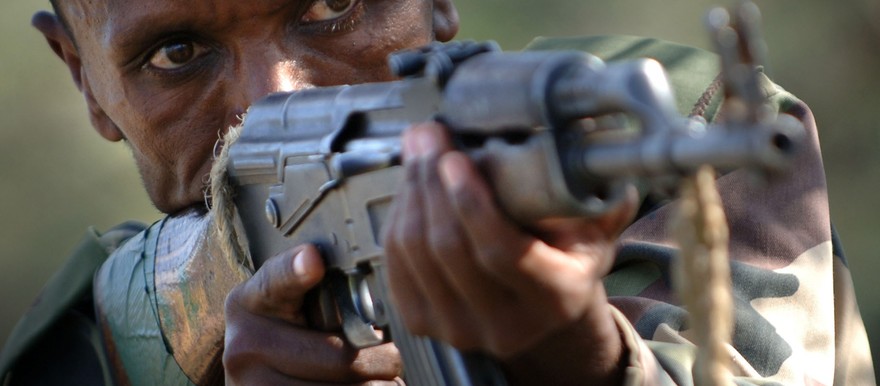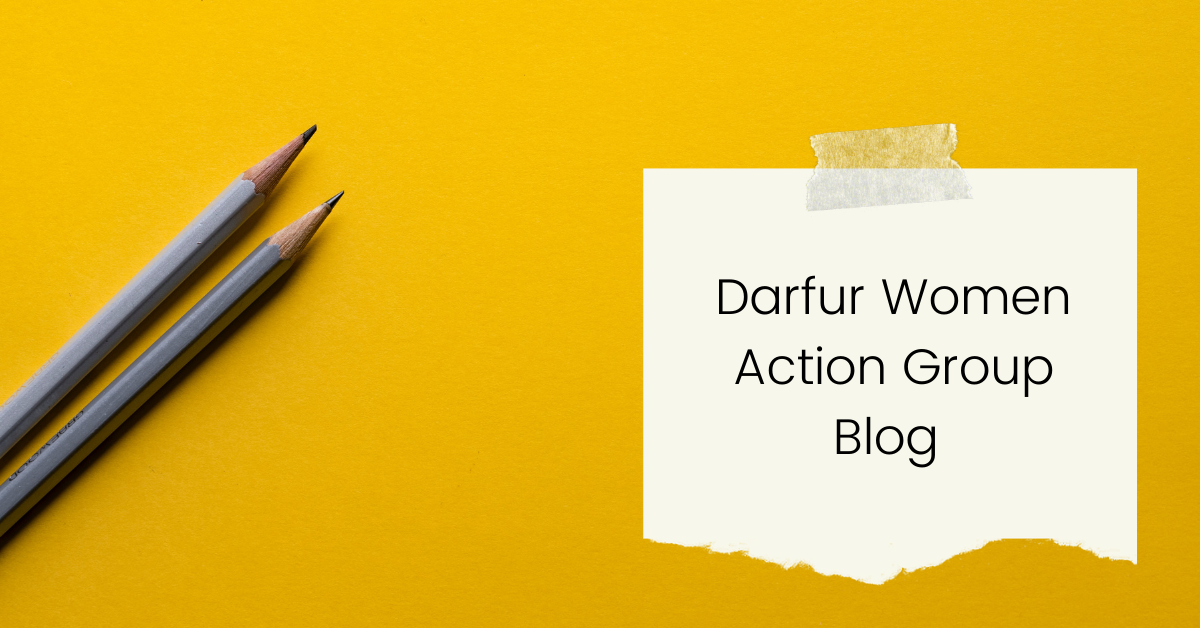To: The President of the United States, Joseph Robinette Biden Jr.
The White House
1600 Pennsylvania Avenue, N.W.
Washington, DC 20500
Stand with the People of Sudan
For Accountability and the Immediate Restoration of a Civilian-led Government in Sudan
Dear President Biden:
Darfur Women Action Group (DWAG) and the undersigned civil society leaders are writing to you to express their grave concern about the military takeover in Sudan and its implication on the safety and security of vulnerable civilians. We are further concerned about attacks on peaceful protesters and the closure of the internet and phone services in Sudan, which constitute another grave violation of the Sudanese people’s rights. Despite the reinstation of Prime Minster Hamdok to his pre-coup position, the Sovereign Council has not followed through with what they have agreed upon in the Interim Constitution—to transfer power to the civilian-led government by the end of their term, November 17, 2021. We believe accountability for orchestrating a coup and the transfer of power to a civilian-led government must not be compromised.
The September 21st coup attempt intensified tensions between the civilian and military factions of the Sudanese interim government, culminating in yet another desperate power move on behalf of the military apparatus. On the morning of October 25, 2021, the military staged a coup, placing Prime Minister Abdalla Hamdok under arrest, later moving him to an unknown location after his refusal to support the military takeover. General al-Burhan justified the coup by claiming that the military needed to protect the country’s security as stated in the constitutional declaration. Nevertheless, General al-Burhan’s actions are unacceptable and in violation of the Interim Constitution.
After news of the coup spread, crowds immediately gathered in the streets to protest in rejection of the coup. However, the military and Rapid Support Forces (RSF) have been patrolling the area with a heavy military presence in various areas across Sudan and are using brutal force against civilians. Thus far, at least 39 people have been reportedly killed and more than 512 injured. Moreover, internet and phone services have been disrupted or unavailable in Khartoum and across Sudan, making it more difficult to access information. In addition, roads and bridges connecting Khartoum with the rest of Sudan have been closed. The internet shutdown has put more people at risk as they face attacks and are unable to reach out for help or emergency assistance. We are worried that with no internet and phone service in Sudan, regions of high risk such as Darfur and South Kordofan, with millions out of their homes, will face a greater risk of violence; the news of recent attacks has already been reported.
DAWG and the undersigned civil society leaders are also extremely concerned over the dissolution of the government, including state governors, which created lawlessness that further endangers the lives of millions of people, particularly those who dare to protest and those vulnerable living in internally displaced camps for near two decades in Darfur and two other areas. We are further concerned about General al-Burhan’s remarks emphasizing close relations with the RSF, which further legitimizes this force involved in the genocide in Darfur. We fear that this will embolden them to continue their genocidal campaign to eradicate the people of Darfur as the RSF continues to attack civilians. In the first seven months of 2021 alone, the RSF and Arab militias have been explicitly responsible for 388 civilian casualties throughout Darfur. Thus, the military takeover can lead to more insecurity and heighten displacement, further deteriorating the humanitarian situation.
As the people of Sudan and we at DWAG and the undersigned civil society leaders are familiar with the military rule and their history of human rights violations, we have repeatedly warned the international community not to trust the Sudanese military leaders who have been implicated in previous crimes and implored the United Nations Security Council not to withdraw the United Nations-African Union Hybrid Operation in Darfur (UNAMID). Additionally, DWAG consistently urged the United Nations Security Council and the United States, in particular, to pressure the interim government to surrender al-Bashir to the International Criminal Court and be held accountable for his crimes. Unfortunately, the failure of the international community to take any of these actions seriously has led General al-Burhan to believe that he can disregard the demands of the people and dismantle the democratic transition without consequences. Orchestrating a coup while unlawfully arresting government officials and endangering the lives of millions is a grave crime that should have shocked the world and galvanized both regional and international leaders to hold the military in Sudan accountable. We greatly appreciate the several statements from US officials, including the statement from President Biden condemning the coup, but given the severe threat in Sudan, words are not sufficient to avert a collapse. To avert a catastrophe, the United States must take immediate action to pressure General al-Burhan and others accountable for their criminal actions to restore the civilian-led government as it has been stipulated in the Interim Constitution.
This coup has destroyed all the gains the people of Sudan have built in the last two years to rebuild their nation. It is time for international actors, such as the United States, to listen to the Sudanese people’s demands. The United States has invested so much in bringing about peace in Sudan, and military leaders must be held accountable for draining such investment. If the United States does not take immediate action to ensure the restoration of a civilian government in Sudan, the possibility of achieving peace and stability will be sabotaged by the former regime’s affiliates. Therefore, DWAG and the undersigned civil society leaders implore the United States to immediately address the current situation before Sudan descends into chaos that will not only affect the prospect of peace and stability in Sudan but in the whole of Eastern Africa and the continent’s horn. It can possibly pose a threat to the United States’ national security as Sudan can once again strengthen its ties with terrorist groups.
DWAG and the undersigned civil society leaders call upon the Biden Administration to take the following actions:
- Dispatch a high-level official to Sudan to gather factual information and mediate the tensions.
- Call for an urgent United Nations Security Council meeting to rally multilateral action against any military takeover in Sudan and thereby avoid a collapse.
- Lead the United Nations Security Council to send an investigative mission to Sudan to oversee the situation and ensure that there is an international presence in Sudan.
- Cease all collaboration with Sudanese military officials and impose targeted sanctions (including a travel ban and assets freezing ) on General al-Burhan, Mohamed Hamdan Dagalo “Hemeti,” and other military members involved in the coup until they surrender the power to a civilian government.
- Facilitate the creation of multilateral grantees to oversee the implementation of the interim period in Sudan and develop strong accountability measures for parties involved in the event that they violate or pose obstacles to the implementation of the interim arrangements.
- Denounce Egyptian government interference, including threatening aid withdrawal in the event that Egypt intervenes in the internal affairs of Sudan by backing the military takeover.
- Call on allies in the Gulf States to not support military control over the interim government.
- Denounce the Russian naval base and its interference with Sudan’s internal affairs.
- Impose pressure for the immediate restoration of the internet and phone services as fundamental civil rights.
- Take strong measures to make criminal accountability for past and current crimes a priority in Sudan.
We believe now more than ever that a civilian-led government and criminal accountability are the only way forward to establish the foundation for democracy and transform Sudan. The United States must prioritize accountability and the safe restoration of a civilian government in Sudan. Without it, there cannot be peace nor democracy in Sudan. The Sudanese people have demanded a civilian government, justice, and security. The United States has the tools at hand to leverage and ensure that these demands are met in order to bring change to Sudan.
DWAG and the undersigned civil society leaders appreciate the role of the United States and its efforts to mediate peace and promote stability in Sudan. We will be grateful for your kind consideration.
Sincerely,
The undersigned,
Niemat Ahmadi, President, Darfur Women Action Group — Washington D.C., USA
Eileen Weiss, New York Coalition for Sudan —New York, USA
Gregory Stanton, Founder and President, Genocide Watch — Virginia, USA
Peter Van Arsdale, Co-chair, Natural Disaster Response Committee, Rotary International — Illinois, USA
Maria Kisumbi, Senior Advisor, Policy & Government Relations, Humanity United — Washington D.C., USA
Dr. Hashim Eltinay, Salaam Sudan — Washington D.C., USA
Dr. Mahmoud Draima, President, Darfur Association of North America — Baton Rouge, USA
Mohamed Yassin Khalifa, Educator & Human Rights Activist — Cambridge, USA
Amber Maze, Co-Founder & Executive Director, Crane Center for Mass Atrocity Prevention — Indiana, USA
Bakhiet Shata, Director, Darfur Community Association — Omaha, USA
Martha Boshnick, Co-chair, Darfur Interfaith Network — Bethesda, USA
Hagir Elsheikh, CEO, HSE Staffing Agency LLC — Pennsylvania, USA
Dr. Beckry Abdel-Magid, Professor, Composite Materials Engineering — Minnesota, USA
Tamador Gibreel, Sudan Human Rights Network — Washington D.C., USA
Kamala B. E. Osman, Sudan Human Rights Network — Texas, USA






